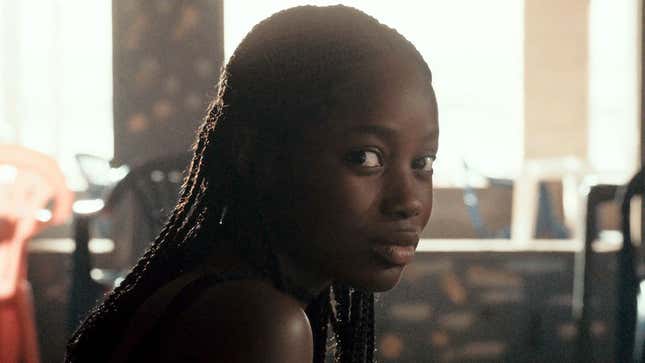Dispatches from the 2019 New York Film Festival: It's Great to Love Movies Again
EntertainmentMovies

“Have you seen any… normal movies?” my mother asked me on the phone last week, as I vaguely explained the movie I had just seen, Albert Serra’s Liberté, which is a sort of paraphilia-in-powdered wigs mood piece about 18th century cruising for sex. Too many, I say! Too many normal movies this year that just didn’t do it for me, from big hits like The Lion King (whose dispassionate photorealistic CGI renderings made me feel like I was watching a bunch of sad circus animals forced to act in a soap opera) to little indies that couldn’t quite, like Booksmart (I thought it was more smarmy than charming and not particularly funny).
Before September, there were a handful of movies this year that I legitimately enjoyed (Climax being at the top of the list), but at last the drought is over. Festival season has unleashed its torrent, and everything I screened, playing this year’s New York Film Festival, I’ve enjoyed. That’s on top of other non-NYFF things I’ve seen, as well, like Judy (broad biopics rarely get so specific and Zellweger is nonstop charming), Hustlers (what’s not to love?), and The Lighthouse (complete and utter screaming-in-your-face-while-dancing-a-jig madness). I feel like I’ve exhaled. It’s great to love movies again.
Below, some thoughts on four that I’ve caught thus far at NYFF, which runs Friday to October 13.
Parasite
The unanimous winner of this year’s Palme d’Or at the Cannes Film Festival and the toast of practically every film geek with a working internet connection, Parasite marks Bong Joon-ho’s return to his native tongue after making the predominantly English language Snowpiercer and Okja. Inflated festival hype is a real thing that owes undoubtedly to a number of factors (not the least of which is the enthusiasm that sprouts out of the joy of getting to watch something before most of the rest of the world). I know this, yet I remain susceptible to it, and so Parasite didn’t quite live up to my expectations, even though I should know better than now to have such high hopes. That said, I did like it and was enthralled for most of it, until the last 10 or so minutes. I think it shares a problem with 2018’s Palme d’Or winner Shoplifters in not quite sticking the landing and petering out in a babbling conclusion that a few snips in the editing room could have made graceful.
The movie is as clever as its characters, but it made me feel like I was being conned myself. Nonetheless, it works as a broad satire, a near fantasyland of class struggle whose intricacies keep layering (there’s what amounts to a twist about two thirds of the way through, though it’s not quite as shocking as the pull quotes would have you believe), but that makes its final sentimental resting place feel like unearned territory. Bong frequently favors multivalence as an aesthetic, but Parasite was too on the nose too often for me to give it my full heart. However, I loved an ambiguity at its core: its title could refer to any of its opposing forces. Capitalism creates an environment where the rich eat the poor, the poor eat the rich, the poor eat the poorer. To have teeth is to have hope.
Liberté
During the ’90s, during the golden age of erotic thrillers, it seemed via scathing reviews that “boring” was the meanest thing you could call such a movie. Sex can be all kinds of things, but it should never be boring! The pursuit of it is another matter entirely—cruising for sex in public is often boring. There’s a lot of waiting around, testing, and disappointment. Albert Serra’s Liberté captures the process well, probably to a fault for all but the most patient (and perhaps horniest viewers). Somewhere in the forest in the 18th century, a bunch of men in powdered wigs who speak a range of languages (French, Italian, German) have gathered to… do stuff.
-

-

-

-

-

-

-

-

-

-

-

-

-

-

-

-

-

-

-

-

-

-

-

-

-

-

-

-

-

-

-

-

-

-

-

-

-

-

-

-








































